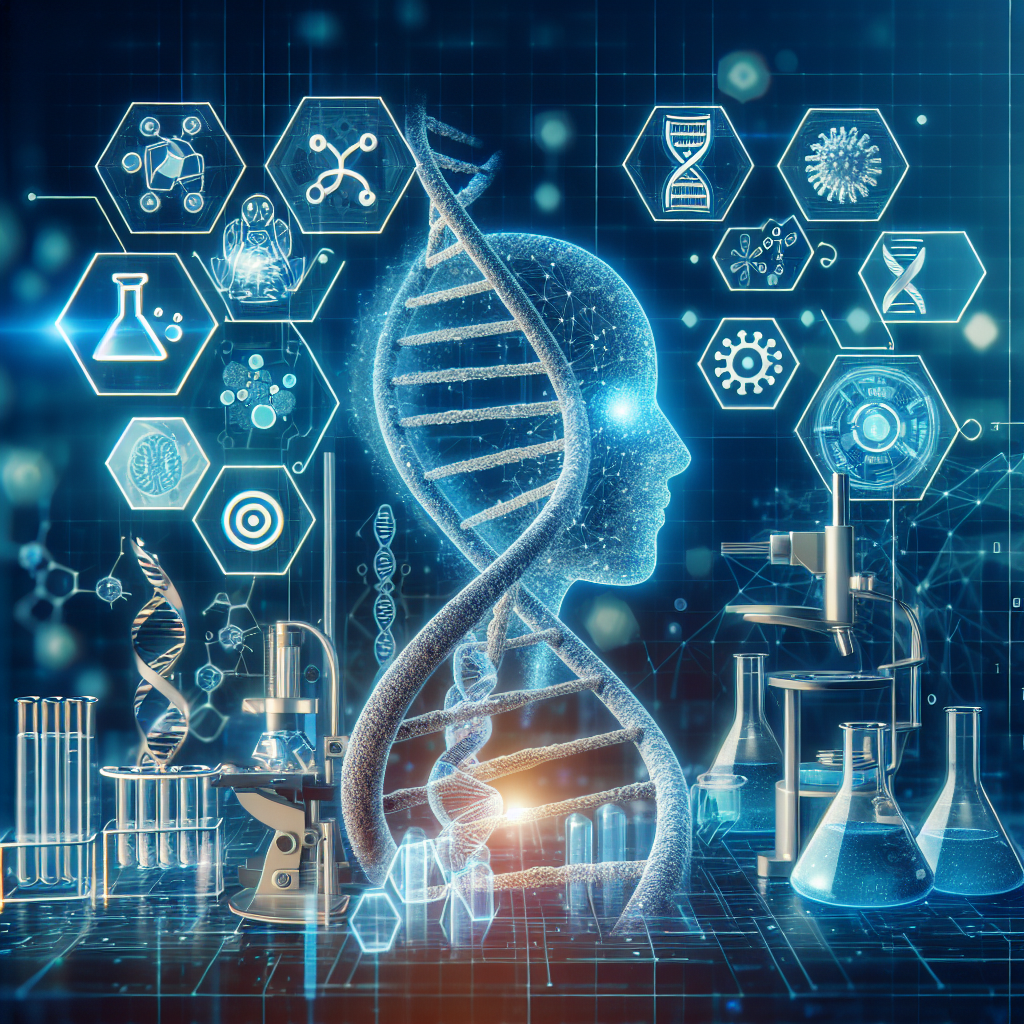AI deployment in biotechnology is revolutionizing the way research is conducted, leading to breakthroughs in drug discovery, personalized medicine, and precision agriculture. This technology is enabling scientists to analyze vast amounts of data quickly and accurately, leading to faster and more efficient research processes.
One of the key areas where AI deployment is making an impact in biotechnology is in drug discovery. Traditionally, drug discovery is a time-consuming and costly process that involves screening thousands of compounds to identify potential drug candidates. With the use of AI, researchers can analyze large datasets to predict the biological activity of compounds, significantly reducing the time and cost involved in drug discovery.
AI algorithms can also be used to analyze genomic data and identify potential drug targets. By analyzing genetic data from patients with specific diseases, researchers can identify genetic mutations that may be driving the disease and develop targeted therapies to treat it. This personalized approach to medicine has the potential to revolutionize healthcare by providing more effective and personalized treatments for patients.
In the field of precision agriculture, AI deployment is helping farmers optimize crop yields and reduce the use of pesticides and fertilizers. By analyzing data from sensors, drones, and satellite imagery, AI algorithms can provide farmers with real-time insights into the health of their crops and soil, allowing them to make data-driven decisions to improve crop yields and reduce environmental impact.
AI deployment in biotechnology is not without its challenges. One of the key challenges is the lack of high-quality data needed to train AI algorithms. Biomedical data is often complex and noisy, making it difficult to extract meaningful insights. Researchers are working to develop new methods for collecting and curating data to improve the quality of training data for AI algorithms.
Another challenge is the need for interdisciplinary collaboration between computer scientists, biologists, and clinicians. Developing AI algorithms for biotechnology requires expertise in both computer science and biology, making it essential for researchers to collaborate across disciplines to develop effective solutions.
Despite these challenges, the potential benefits of AI deployment in biotechnology are vast. From accelerating drug discovery to revolutionizing personalized medicine, AI is transforming the way research is conducted in biotechnology. By harnessing the power of AI, researchers can unlock new insights into complex biological processes and develop innovative solutions to some of the most pressing challenges in healthcare and agriculture.
FAQs:
Q: How is AI deployment in biotechnology different from traditional research methods?
A: AI deployment in biotechnology allows researchers to analyze large datasets quickly and accurately, leading to faster and more efficient research processes. Traditional research methods often rely on manual data analysis, which can be time-consuming and prone to human error.
Q: What are some examples of AI applications in biotechnology?
A: Some examples of AI applications in biotechnology include drug discovery, personalized medicine, and precision agriculture. AI algorithms can analyze genomic data to identify potential drug targets, predict the biological activity of compounds, and optimize crop yields.
Q: What are some of the challenges of AI deployment in biotechnology?
A: Some of the challenges of AI deployment in biotechnology include the lack of high-quality data needed to train AI algorithms and the need for interdisciplinary collaboration between computer scientists, biologists, and clinicians. Researchers are working to address these challenges to develop effective solutions for biotechnology research.
Q: How is AI deployment in biotechnology revolutionizing healthcare?
A: AI deployment in biotechnology is revolutionizing healthcare by enabling personalized medicine, accelerating drug discovery, and improving patient outcomes. By analyzing genetic data and developing targeted therapies, AI is transforming the way diseases are diagnosed and treated.
Q: What is the future of AI deployment in biotechnology?
A: The future of AI deployment in biotechnology is bright, with continued advancements in drug discovery, personalized medicine, and precision agriculture. Researchers are working to develop new AI algorithms and technologies to unlock new insights into complex biological processes and develop innovative solutions to some of the most pressing challenges in healthcare and agriculture.

